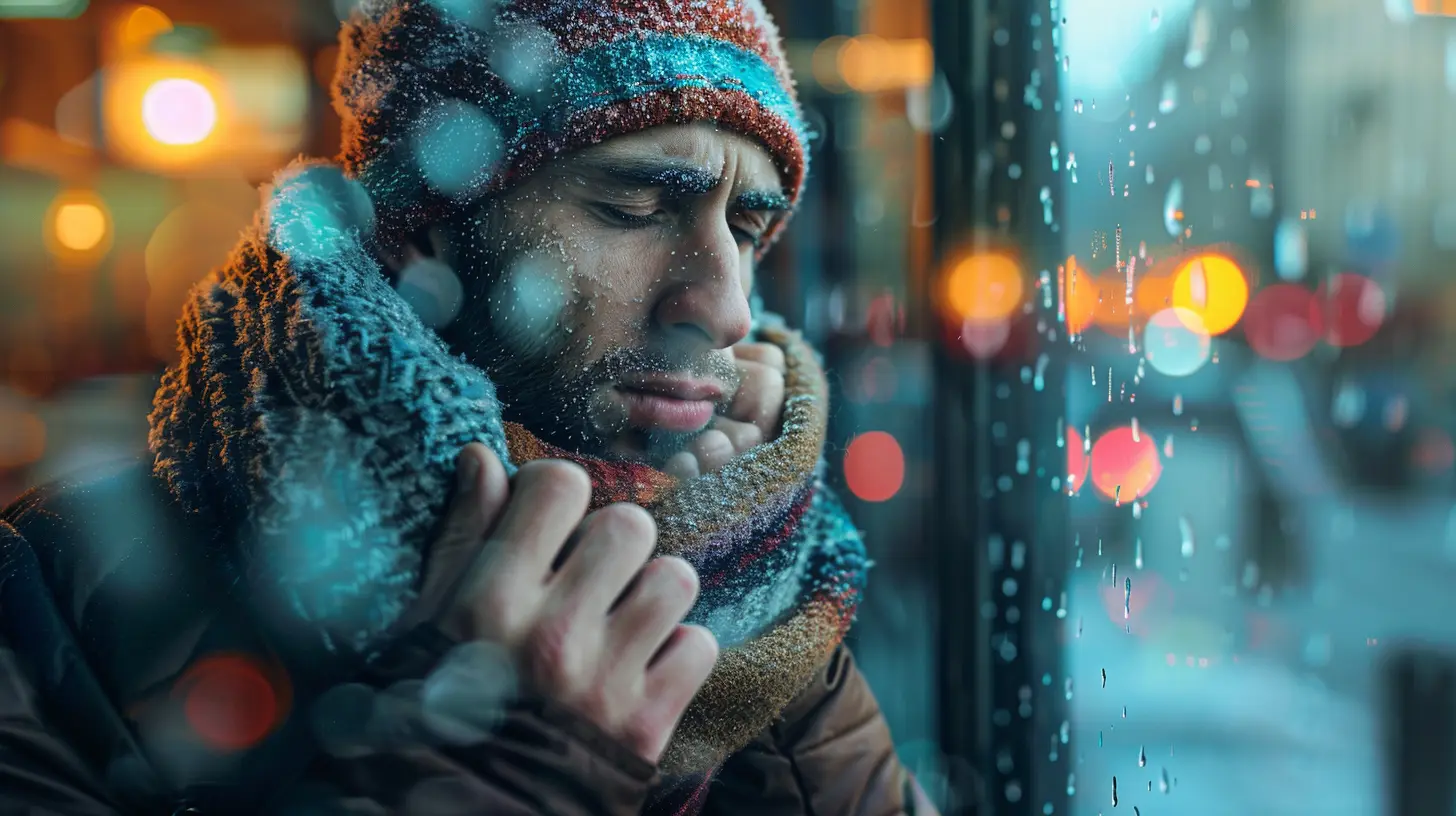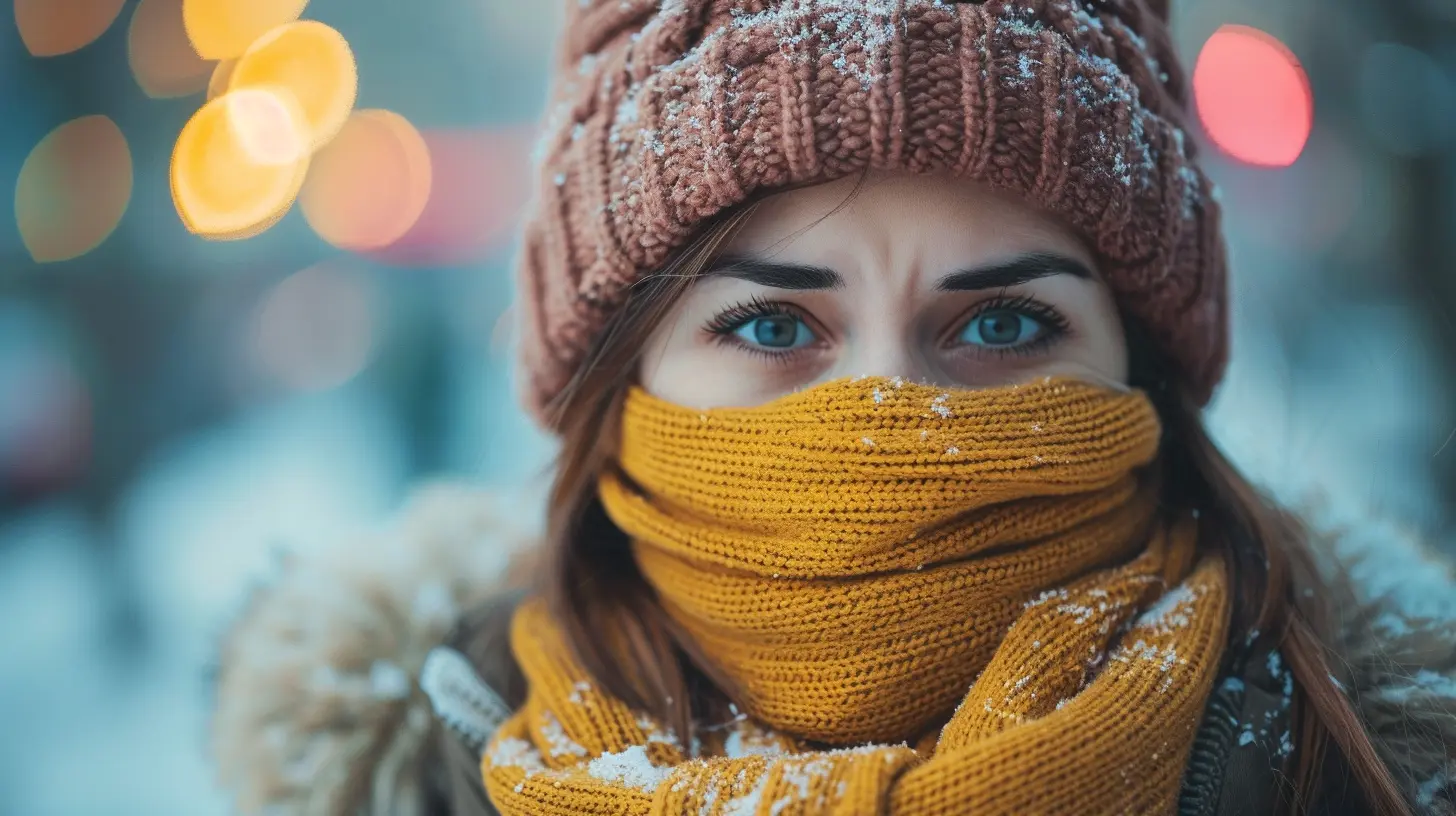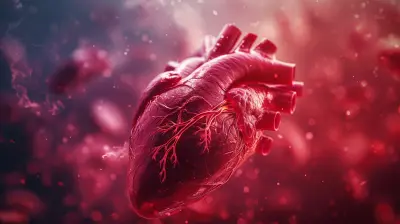The Science Behind Why Cold and Flu Feel Worse in the Evening
27 August 2025
Ever noticed how a cold or the flu feels so much worse at night? One minute you're dealing with a mild cough, and the next thing you know—bam—you’re tugging at your blanket with chills, sniffling like crazy, and your head feels like it's packed with cotton. Sound familiar?
If you’ve ever wondered why your symptoms seem to go nuclear as the sun goes down, you’re not alone. There’s actually quite a bit of science that explains this nightly downturn. Spoiler alert—it’s not just in your head (well, okay, maybe partly... but in a very real, biological way).
Let’s break down why your body seems to betray you after sunset when you’re nursing a cold or the flu.
Your Body’s Battle Schedule: The Circadian Rhythm
Let’s start with your body’s internal clock—aka the circadian rhythm. This 24-hour biological timer controls everything from sleep to hormone levels to body temperature. It’s like your body’s own little orchestra conductor, keeping everything in sync.So, what does this have to do with feeling worse in the evening?
Well, immune system activity follows this rhythm too. During the day, your immune system is generally in monitor-and-patrol mode. But at night? That’s when it switches into repair-and-respond mode.
This means your body starts releasing more inflammatory cytokines—those little chemical messengers that amp up immune responses. They help your body fight off viruses, sure, but here’s the kicker: they also cause fever, fatigue, muscle aches, and other unpleasant symptoms.
So, in a weird twist, your body is actually doing a good job fighting off illness… it just feels awful while it’s doing it.
Cortisol: The "Feel Better" Hormone That Clocks Out at Night
During the day, your body produces more cortisol, a stress hormone that also acts like a natural anti-inflammatory. Kind of like your body’s built-in Advil.But guess what? Cortisol production dips as you get closer to bedtime.
Without enough of it floating around, inflammation has more freedom to do its thing—which means nasal congestion, a sore throat, and a pounding headache might all intensify in the evening.
It’s like your immune system throws a wild party at night—and unfortunately, you're the house getting trashed.
Melatonin: The Sleepy Sidekick With a Big Role
You’ve probably heard of melatonin being the hormone that makes you sleepy. But it’s got a side hustle you might not know about—it also influences your immune response.At night, melatonin levels rise to help you sleep, but it also interacts with your immune cells. It encourages some of the most inflammatory immune responses, which again, are great for fighting off viruses—but not so great for your comfort.
So as melatonin goes up, so does your immune activity. That could be another reason those shivers and chills won’t leave you alone after 8 PM.
Body Temperature Takes a Dip—But It Feels Like a Blast Furnace
Here’s an odd twist: your body temperature naturally drops in the evening to prepare for sleep. That’s totally normal. But when you’re sick?That slight drop can mess with your internal thermostat, especially if your immune system is making you feverish. You might swing from boiling hot to freezing cold within minutes. The result? You end up in a war with your blanket, peeling it off one second, bundling up the next. It’s exhausting.
Ever wondered why fever spikes at night? Now you know—it’s your body trying to cool down for sleep while fighting off infection at the same time. The result? Pure discomfort.
Sleep? Ha! Your Body’s Too Busy Fighting
You’d think your body would let you rest while it’s healing, right? Not exactly.Many people find it hardest to sleep when they’re sick, and there’s a reason for that. Remember those inflammatory cytokines we talked about earlier? They mess with your sleep cycles. Add in some nasal congestion and a sore throat and—voilà—falling asleep becomes nearly impossible.
And without enough sleep? Your immune system can’t work efficiently. It’s a vicious cycle: you need rest to recover, but your symptoms keep you up, making it harder to get better.
Lying Down = The Worst Position Ever (When You're Sick)
Let’s talk about posture real quick.When you're upright during the day, mucus tends to drain more easily from your sinuses and chest. Gravity’s doing you a solid. But the second you lie down at night?
Boom—everything gets clogged. Mucus pools in your head and chest, making it harder to breathe and triggering that oh-so-lovely post-nasal drip. You might even find yourself choking on your own snot (gross, but true).
This adds to that wonderful nighttime cocktail of coughing, sneezing, and restlessness.
Evening Is the Body’s “Data Upload” Time
Here’s a geeky analogy—your brain is like a computer that uploads and organizes data while you sleep. When you’re sick, your brain is also dealing with signals like pain, discomfort, and inflammation.So yeah, as your body winds down, it actually sharpens your awareness of how crummy you feel. You can’t distract yourself with work or errands anymore. You’re lying in bed, just you and your 101 symptoms.
No wonder everything feels worse.
Hormones, Inflammation, and Timing—It’s All Connected
Let’s wrap this puzzle together. Why do you feel worse in the evening?- Your immune system revs up at night
- Inflammatory hormones increase while anti-inflammatory ones decrease
- Your body temp shifts, messing with fever and chills
- Melatonin aids immune responses, not just sleep
- Lying down makes congestion worse
- Mental focus increases on how bad you feel
It’s a perfect storm of biological timing, immune response, and good ol’ gravity. None of it’s your fault—and honestly, it’s your body doing its job. It just feels awful in the moment.
How to Feel Less Miserable At Night
Now that you know the science, let’s talk strategy. You might not be able to make the symptoms vanish instantly, but you can ease the nighttime misery a bit.1. Stay Propped Up
Sleeping slightly upright can help with drainage and reduce coughing. Use an extra pillow or two. Your sinuses will thank you.2. Use a Humidifier
Dry air makes congestion worse. A humidifier can keep your nasal passages moist and help you breathe easier.3. Sip Warm Liquids
Hot tea, broth, or even warm water with honey can soothe a scratchy throat and break up mucus.4. Medicate (Wisely)
Decongestants or nighttime cold meds can help—just don’t overdo it. Always follow the directions and consult your doctor if needed.5. Keep Things Cool
A slightly cooler room can lower body temp and reduce feverish discomfort. Just don’t freeze yourself.6. Avoid Screens
The blue light from your phone or TV messes with melatonin. Try reading or listening to calming music instead to help you drift off.Should You Worry About Feeling Worse at Night?
Short answer? Not really.As frustrating as it is to feel ten times sicker after 7 PM, it’s actually a sign your immune system is working. Your body is taking advantage of your rest hours to launch its defense. So even though it feels like a betrayal, it’s actually part of the path to recovery.
However, if nighttime symptoms are severe, worsening, or persist, especially with high fever, chest pain, or difficulty breathing—don’t wait. Get medical help. Better safe than sorry.
Final Thoughts
So the next time you find yourself sniffly, achy, and miserable as the sun sets, you’ll know it’s not just bad luck. It’s biology. Your circadian rhythm, your hormones, and your immune system are working overtime to kick that virus to the curb.Yes, nighttime might feel like a never-ending ride on the illness rollercoaster—but it’s all part of your body’s strategy to heal while you sleep (even if sleep feels impossible).
Take care of yourself. Rest, hydrate, and cut your immune system some slack. It’s doing the best it can—even if it makes your evenings a little rough.
all images in this post were generated using AI tools
Category:
Cold And FluAuthor:

Arthur McKeever
Discussion
rate this article
1 comments
Harrison Rocha
This article provides insightful explanations for why cold and flu symptoms intensify at night. The connection between circadian rhythms, hormonal changes, and immune response is well-articulated, offering readers a clearer understanding of their nighttime discomfort. Great read!
September 2, 2025 at 3:50 AM

Arthur McKeever
Thank you for your thoughtful feedback! I'm glad you found the article insightful and that it helped clarify the connection between circadian rhythms and nighttime symptoms.


